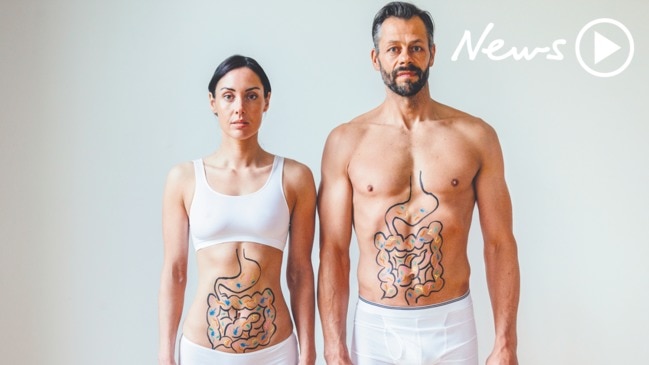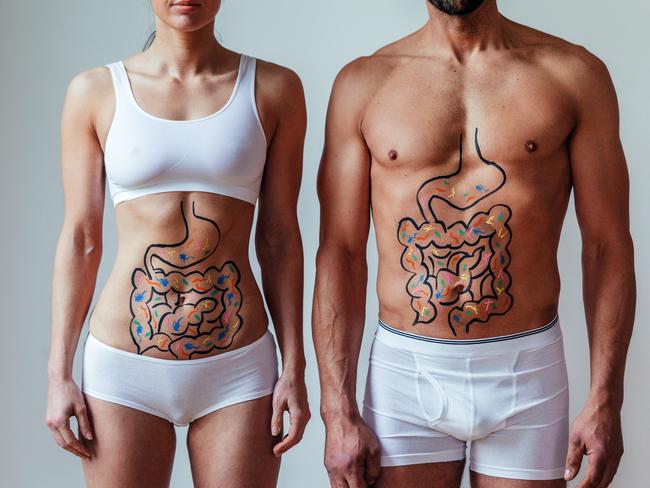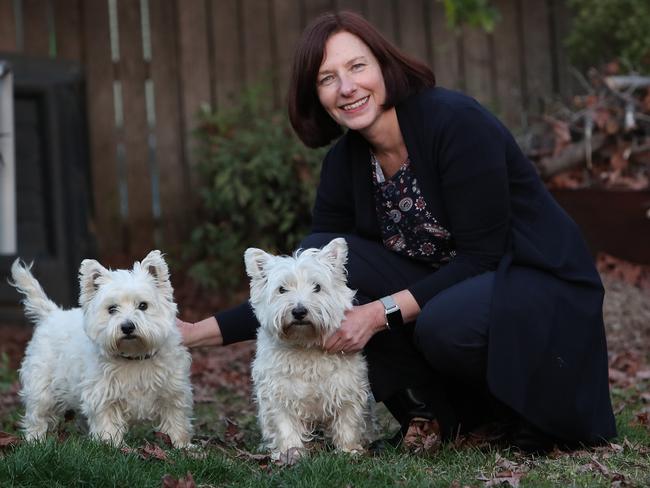What’s really going on inside your gut? This is what a gut bacteria test will tell you
Gut bacteria is the new frontier of medicine linked to cancer, autism, depression and even athletic performance. And there’s a $350 test that can tell you exactly what’s going on inside yours.

Illness
Don't miss out on the headlines from Illness. Followed categories will be added to My News.
EXCLUSIVE
It’s not the news anyone wants to hear. My gut is teeming with an overload of bacteria that lives off mucus and I’m eating too much animal protein.
The upside is I have plenty of bugs that reduce anxiety and depression and I could improve things if I ate more cold potatoes and chilled rice.
And, apologies to the office and my family because I’m warned: “Your flatulence odour might be high”.
DONATING POO COULD EARN YOU $13,000 A YEAR
IS OUT ANTIBIOTIC ADDICTION KILLING US?
These are the surprising findings of my recent gut bacteria test, an emerging area of medical research that could eventually play a major role in treating everything from cancer and depression to Parkinson’s disease.

In coming years, swiping a stick over a piece of toilet paper and sending it off for analysis could become as common as a blood test to help determine how to manage your health.
The trillions of bacteria living inside the human gut have been linked to improved outcomes in treating cancer, depression and heart disease, autism, inflammatory bowel disease, obesity and asthma.
Medical interest in the role of gut bacteria stems from a recent discovery that we are only 43 per cent human. Our bodies are comprised of 30 trillion human cells but 39 trillion microbial cells.
At a DNA level we are only one per cent human says a leading expert on the human microbiome Dr Rob Knight from the American Gut Project at the University of California.
And the microbes in our body are unique to us, even identical twins have very different microbiomes with just 37 per cent of their gut bacteria being similar.

Our microbial genes change depending on what we eat and are upset by antibiotics which destroy not just the bad bugs that cause disease but the good ones that keep us healthy.
Scientists mapping obesity in western countries showed countries with high antibiotic use also have rising obesity levels.
Research in mice has found if rodents with no gut microbes are fed bacteria from fat mice they get fat, if they are fed bacteria from a lean mouse by eating its poo they become lean.
A 2011 study tracking the diets of 120,000 people over 20 years found people who ate yoghurt, a food that helps generate good gut bacteria, were likely to weigh less while the worst food for weight loss was potato fries.
Scientists are testing whether tweaking a person’s microbiome by changing their diet or transplanting gut bacteria from a healthy person into their system can affect their health.
This is where poo transplants and “crapsules” come in. A nasty bacteria called c difficile that causes acute diarrhoea kills tens of thousands of people worldwide every year and antibiotics are only 30 per cent effective at treating it.

However, patients treated with a transplant of poo from a healthy person recover from the illness quickly.
Professor Thomas Borody at Sydney’s Centre for Digestive Diseases carries out on average 10 treatments per day and he is developing poo pills as another way of changing gut bacteria.
At the University of Queensland Professor Mat Cooper is testing a theory that vinegar which contains a substance made by good gut bacteria could be used to stop children getting asthma.
Monash University researcher Dr Alison Thorburn has found the offspring of pregnant mice who were fed a high fibre diet did not go on to develop asthma.
Nature Medicine recently reported gut bacteria can affect athletic performance and showed mice fed veillonella bacteria increased their performance on a treadmill by 13 per cent.
University of Virginia researchers recently found changes to gut bacteria caused by using antibiotics made it easier for breast cancer cells to spread in the blood and lungs.
Professor Sarkis at the Californian Institute of Technology has found that animals with no gut bacteria do not develop multiple sclerosis.
Children with autism often lack two types of gut bacteria and when they are given a poo transplants see a 45 per cent improvement in language, social interaction, and behaviour.
People with depression have different gut bacteria and a 2016 study found when this bacteria was transplanted into mice they developed depressive like behaviours.
To harness this emerging science Australian companies like Microba are offering gut bacteria tests for $350 and will provide a comprehensive analysis running to 26 pages, of what’s lurking in your gut.
My report shows the most dominant bacteria in my gut is Akermansia, it is ten times higher in my gut than in a normal healthy person.
Microba’s gut bacteria coach nurse Christine Stewart suggests I try to eat more resistant starch which I can get from cooled cooked potatoes and rice and from gluten free grains like teff and sorghum.
But there is also a lot the report doesn’t tell me. A lot of the bugs living in my gut don’t yet have a name or haven’t been sufficiently studied so the information is not much use.
University Sydney’s gut microbiome expert Associate Professor Andrew Holmes “the gut microbiome does not, in isolation, explain mental health or Parkinson’s disease but it is involved and contributes to variations we see from person to person”.
Its not that the tests are ‘not much use’ but that the expectations of the tests should be realistic, he said.
University of Newcastle researcher Dr Emma Beckett warns people who’ve used three different gut testing companies have received a different answer from each.
To improve gut bacteria we need to eat probiotics like yoghurt as well as prebiotics like fibre from fruit and vegetables and wholegrains which feed these good bacteria, she said.
And she warns it is not just antibiotics that can mess with good gut bacteria even one drink of alcohol can affect the balance of gut bacteria.
At the end of the day all I’ve really learnt from my gut bacteria test is what I already knew — I need to eat a diet with more wholegrains and legumes, lots of fruits and vegetables, less red meat and less alcohol.


